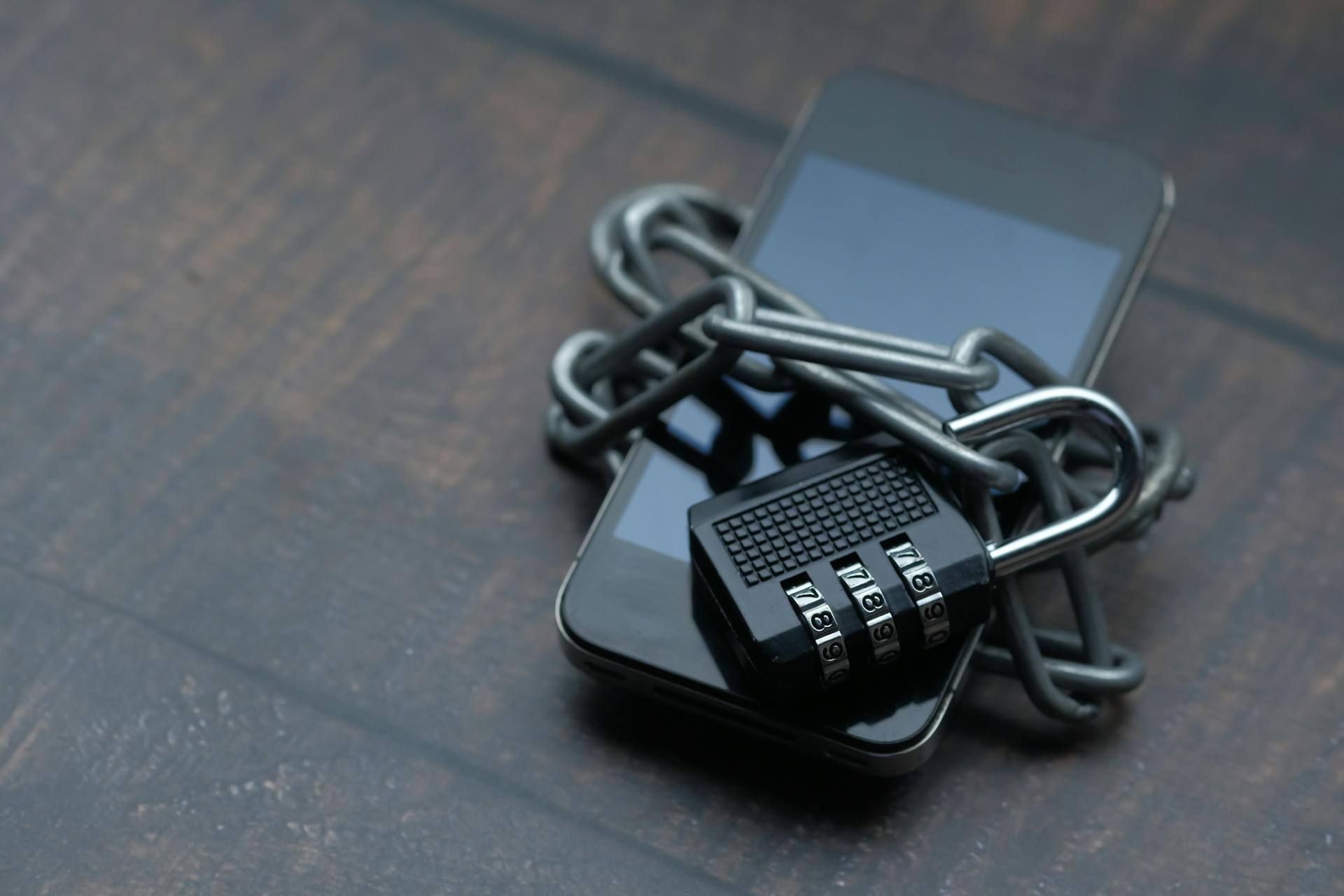Safeguarding your teen online has become as important as teaching them to look both ways before crossing the street.
The virtual world, while offering incredible opportunities for connection and exploration, also harbors new and growing risks that can pose serious threats to your teen’s safety and well-being.
One of the most prevalent dangers is catfishing, where online predators create fake personas to manipulate and exploit unsuspecting individuals, often teens.
These predators may engage in grooming behaviors, gradually gaining your child’s trust and convincing them into sharing personal information or compromising content.
Another concerning issue is the widespread collection and misuse of personal data by various online platforms and applications.
Seemingly harmless apps or games may be gathering your teen’s location data, browsing habits, or other sensitive information, which could be exploited for criminal purposes, such as identity theft, stalking, or targeted advertising.
In the next section, we will discuss various ways you can keep your teen safe online.
Use Parental Controls and Monitoring Apps
Parental control software and monitoring tools can be invaluable allies in keeping your teen safe online.
These tools allow you to set boundaries and limits on your child’s internet access, filtering out inappropriate content and enforcing time restrictions.
The following table provides examples of parental control apps and how they help you protect your teen.
| Parental Control & Monitoring Apps | How They Work |
| Family Link (by Google) | Allows parents to set digital ground rules, manage apps, track screen time, and remotely lock devices; provides insights into their child’s digital activity and location. |
| Kaspersky Safe Kids | Offers content filtering, app usage control, screen time management, and GPS tracking; provides alerts on risky activities and allows parents to set screen time limits and block apps. |
| Qustodio | Provides comprehensive monitoring with features like content filtering, screen time control, social media monitoring, and location tracking; offers real-time alerts and activity reports. |
| Net Nanny | Offers content filtering, website blocking, time management, and profanity masking; provides alerts on online searches and messages containing inappropriate content. |
| Norton Family | Allows parents to monitor device usage, set time limits, block inappropriate content, and track location; provides activity reports and alerts on potential risks or cyberbullying. |
| Bark | Utilizes AI to monitor text messages, emails, and social media for signs of cyberbullying, online predators, or mental health issues; sends alerts to parents for intervention. |
However, it’s crucial to strike a balance between protecting your teen and nurturing an environment of trust and open communication.
Avoid relying solely on technology; engage your teen in candid conversations about responsible internet use and the rationale behind the implemented safeguards.
Educate Your Teen on The Importance of Being Alert
Talk to your teen often about the online world, sign them up for teen workshops or seminars, and recommend reputable online resources to equip your teen with the tools they need to stay safe.
Emphasize the importance of safeguarding personal information, such as addresses, phone numbers, and financial details.
Teach them to be wary of sharing sensitive data with strangers or on public platforms, as it can lead to identity theft, cyberbullying, or even physical harm.
Furthermore, highlight the risks associated with engaging with unknown individuals online. Examples include:
- Online harassment and bullying
- Grooming by predators without realizing they are being taken advantage of
- Exposure to inappropriate content
- Privacy violations and access to their personal information
- Risk of identity theft and being scammed
- Receiving misinformation and being manipulated to do questionable things
Encourage your child to be cautious when interacting with unfamiliar individuals and to report any suspicious or inappropriate behavior immediately.
Teach Safe Social Media Practices
It is highly likely that social media platforms have become integral to your teen’s social life, making it crucial to educate them on safe practices.
Guide them in managing their friend lists, accepting connection requests only from trusted individuals they know personally.
Encourage them to review and adjust privacy settings regularly, limiting access to personal information and posts to a select audience.
Emphasize the importance of thoughtful content sharing.
Teach your teen to pause and reflect before posting, considering the potential long-term implications of their online footprint.
Remind them that anything shared online can be cached, shared, or misused, even after deletion.
Additionally, advise your teen against revealing their whereabouts or personal details, as this information could be exploited by ill-intentioned individuals.
Teach them to trust their instincts and to report any suspicious or uncomfortable interactions online to you or another trusted adult.
Related: A Parent’s Guide to Instagram: Comprehensive Answers to Your Questions
Implement Strong Password Security
Having a strong password security is the first line of defense against unauthorized access to your teen’s online accounts and personal information.
Emphasize the importance of creating strong, unique passwords for each online platform and service they use, combining uppercase and lowercase letters, numbers, and special characters.
Educate your teen about the risks associated with using easily guessable passwords or reusing the same password across multiple accounts.
If one account is compromised, it could grant access to their entire online presence, exposing them to identity theft, financial fraud, or other malicious activities.
Encourage the implementation of two-factor authentication (2FA) wherever possible.
This additional security layer requires a second form of verification, such as a one-time code sent to a trusted device or biometric authentication, making it significantly harder for unauthorized individuals to gain access.
Stress the importance of keeping passwords confidential and avoiding sharing them with friends or online acquaintances.
Explain that even trusted individuals could intentionally or mistakenly compromise their accounts, putting their personal information at risk.
Connect With Your Teen Online
Staying connected with your teen’s online activities can be a proactive step towards ensuring their safety.
Familiarize yourself with the platforms, apps, and websites they frequently use, enhancing a better understanding of their virtual world.
Follow your teen on social media platforms they engage with, respecting their privacy while staying informed about their online interactions and the content they consume or share. This simple act can provide valuable insights into their:
- Interests
- Peer groups
- Potential areas of concern
Additionally, make an effort to learn about the latest trends, apps, and online platforms popular among teens.
Staying up-to-date can help you identify potential risks or inappropriate content before they become an issue, enabling timely intervention and guidance.
However, it’s crucial to strike a balance between monitoring and respecting your teen’s privacy.
Avoid excessive surveillance or invading their personal space, as this could damage the trust and open communication you’ve worked to establish.
Instead, engage in regular, open dialogues about their online experiences, nurturing an environment of mutual understanding and trust.
Look for Signs of Trouble
Despite your best efforts, your teen may encounter negative experiences online, such as cyberbullying, online harassment, or exposure to harmful content.
It’s vital to remain vigilant for any signs of distress or concerning behavior, addressing them promptly and providing the necessary emotional support.
Be attentive to changes in your teen’s mood, behavior, or online activity patterns.
Sudden withdrawal, increased irritability, or a lack of interest in previously enjoyed activities could indicate underlying issues that require your attention and care.
Pay close attention to their social media posts, messages, and online interactions. Concerning content should be addressed immediately with compassion and professional support if needed. These concerns include:
- References to self-harm
- Suicidal ideation
- Expressions of severe distress
If you notice your teen becoming defensive, evasive, or secretive about their online activities, it may be a red flag warranting further investigation.
Approach the situation with empathy and open communication, creating an environment where they feel comfortable sharing their experiences without fear of judgment or punishment.
ParenTeen Kenya Can Help
If you suspect your teen is experiencing significant distress or is at risk of harm, do not hesitate to seek professional help.
At Parenteen Kenya, we provide one-on-one and group therapy sessions for teens in distress.
We also offer parental training covering various topics that can help the parent connect more with their teenager. Book a session for your teen today.
Images by Pexel and Unsplash
Jane Kariuki is a devout Christian, Clinician, Psychologist, and founder of ParenTeen Kenya. She authored an exceptional training manual used in her teens’ workshop and an instructional guidebook for her parenting classes. If she is not training, blogging, or counseling, Jane loves to spend time with her sweet husband and three children.











[…] story highlights how social media algorithms and peer influence can shape teenagers’ perceptions and behaviors, including their […]
[…] Learn more: How to Keep Your Teen Safe Online in 2024 […]